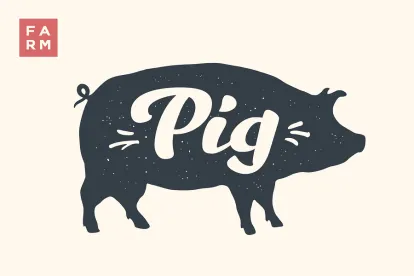In a major decision with widespread impact, the United States Supreme Court upheld California Proposition 12.
Proposition 12 is a California state law, adopted in 2018 by ballot measure, that requires (among many other things) that pork sold in the state of California must come from facilities that provide gestating sows significantly more room than current facilities provide. The law has been hotly contested by the National Pork Producers Council and many others, but that litigation has now come to an end. This is a complicated situation, and this article cannot hope to address all of the aspects of it but instead will attempt to provide a brief overview.
California is the nation's largest domestic market and accounts, by some measures, for nearly fifteen percent of the nation's nominal gross domestic product (as a measure of the economy). California's economy is larger than all but 28 countries in the entire world. Sellers around the country (and the world) are dependent on that market, and even if they do not want to participate in it, it is often practically impossible to prevent at least some produced goods from making their way to California. So, when California decides to regulate the sellers of goods in other states (some over a thousand miles away), it makes for big news, especially when pork is the topic. California consumes a staggering thirteen percent of the pork produced in the United States, but it produces less than one percent of it.
On the surface, Proposition 12's increased space requirements seem like a humane and evolved way to treat animals. But, as is so often the case in the modern world, the situation is much more complicated than that. The current caging designs marry the need for high food production with the territorial, hierarchical, and often violent nature of gestating sows. In order to meet the new standards imposed by Proposition 12, pork producers must significantly increase the size of their facilities, increasing the impervious surface footprint. In North Carolina, where the Cape Fear River Basin contains more meat production per square mile than nearly any other place in the world, additional impervious impact presents an environmental challenge. Moreover, the costs associated with such improvements are significant, leading to questions about access to capital and also how the price point of pork, a primary source of comparably cheap protein in the United States, can be maintained at current levels. And these are just a few illustrations of the ripple effects of this ruling.
The Plaintiffs in this litigation argued that Proposition 12 violates the Constitution's so-called “dormant” Commerce Clause. Under the Constitution’s Commerce Clause, Congress has exclusive jurisdiction to regulate interstate commerce. The “dormant” Commerce Clause embodies the inverse principle: while Congress can regulate national commerce, individual states cannot do so. Against that backdrop, the Plaintiffs, supported by the US Government, argued both that Proposition 12 had the impermissible “practical effect” of controlling commercial activity outside of California and that, even if that were not true, Proposition 12 offered no legitimate benefit to California’s citizens compared to the burden it placed on interstate commerce.
The Supreme Court disagreed and sided with California. In a fractured opinion, a majority of the Court determined that the measure's requirements are within the state's authority to regulate animal welfare and do not discriminate against interstate commerce. The Court rejected the Plaintiffs’ “practical effects” argument, instead concluding that the dormant Commerce Clause prohibits only discrimination in favor of in-state businesses. The ruling affirms the state's right to set standards for the treatment of animals within its borders, even if it affects products imported from other states.
The mood for the North Carolina pork industry is a somber one at the moment. Deep concerns about maintaining the economics of a $10 billion industry abound, as do fears of future regulations from the "consuming" states, like California, that specifically target the "production" states, like North Carolina. Much remains to be seen in terms of the overall impact.





 />i
/>i

